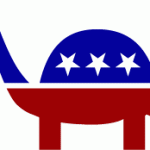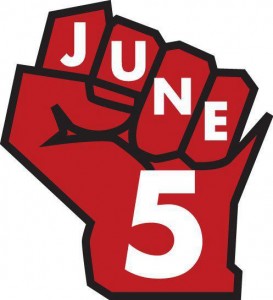The rhetoric of the past 30 years of the Conservative Era has led to a profound cynicism about the role of Government as an entity for the common good. The very concept of “Of the People, By the People, For the People” has been replaced with “get off my lawn”. The irony is that this modern conservative mantra of hatred against “big” government (even though government is the smallest it has ever been, and Democrat Administration preside over larger cuts to the size of Government than do Republican ones) is actually counter to the roots of conservatism itself; old-fashioned conservatism taught that Government was a tool to be wielded in service of community and the common good. Modern conservatives have rejected the idea that Government has any value beyond national defense (ironic, given that America is the sole superpower on the world and faces no serious existential threat from any other nation or group, or even all of them combined).
In fact, it is the conservative movement’s antipathy towards government that is the existential threat. Here’s a powerful argument about how this has led to an erosion of moral authority, which is necessary as a cohesive force to keep citizens invested in and participating in the government that still runs “Of, By and For” them:
What is happening now is a growing alienation of millions of Americans from a government they do not recognize as theirs; what is happening now is an erosion of moral adherence to this political system.
What are the consequences when many millions of children are told and come to believe that the government that rules them is morally illegitimate? Many of us have not been listening to what is more and more frequently being said by persons of influence and moral authority. Many examples might be cited. Supreme Court Justice Antonin Scalia in a recent lecture: “A Christian should not support a government that suppresses the faith or one that sanctions the taking of an innocent human life.” The Archbishop of Denver in a pastoral letter on recent court rulings: “The direction of the modern state is against the dignity of human life. These decisions harbinger a dramatic intensifying of the conflict between the Catholic Church and governing civil authorities.”
Professor Hittinger observes that the present system “has made what used to be the most loyal citizens—religious believers—enemies of the common good whenever their convictions touch upon public things.” The American people are incorrigibly, however confusedly, religious. Tocqueville said religion is “the first political institution” of American democracy because it was through religion that Americans are schooled in morality, the rule of law, and the habits of public duty. What happens to the rule of law when law is divorced from, indeed pitted against, the first political institution?
“God and country” is a motto that has in the past come easily, some would say too easily, to almost all Americans. What are the cultural and political consequences when many more Americans, perhaps even a majority, come to the conclusion that the question is “God or country”? What happens not in “normal” times, when maybe America can muddle along, but in a time of great economic crisis, or in a time of war when the youth of another generation are asked to risk their lives for their country? We do not know what would happen then, and we hope never to find out.
I think we are finding out today.
(From the introduction to the November, 1996 edition of First Things, an issue dedicated to the question, “The End of Democracy?”)













